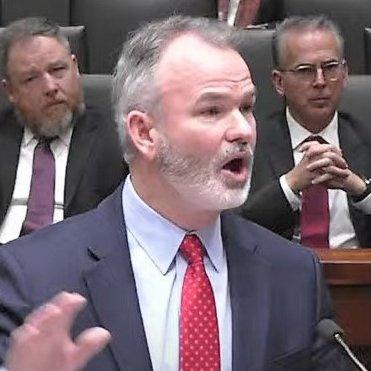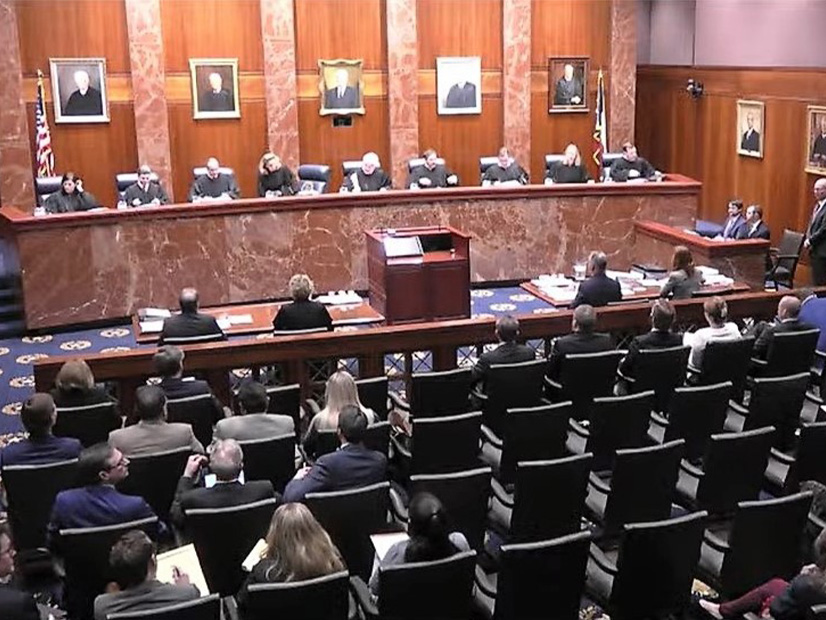The Texas Supreme Court heard oral arguments Monday morning in a pair of lawsuits that could determine whether ERCOT has a right to sovereign immunity.
The first was ERCOT’s appeal to the high court that it find the grid operator to be a governmental agency and entitled to immunity from lawsuits (22-0196). It asked the court to reverse a state appeals court ruling last February that it is a private, independent, membership-based nonprofit not created or chartered by the state. (See ERCOT’s Legal Issues Continue to Mount.)
The second involves CPS Energy’s claim against ERCOT over its wholesale market’s high prices during the February 2021 winter storm (22-0056). An appeals court in 2021 sided with ERCOT’s claims that the grid operator is a “governmental unit” and dismissed the San Antonio municipal utility’s lawsuit.
ERCOT said in both lawsuits that it can’t be sued because it’s a governmental entity under the authority of the Public Utility Commission of Texas. On Monday, the grid operator’s attorneys painted a dire picture should ERCOT be found a private entity and open to lawsuits.
 Attorney Elliot Clark defends ERCOT against CPS Energy as CEO Pablo Vegas (right) listens. | Supreme Court of Texas
Attorney Elliot Clark defends ERCOT against CPS Energy as CEO Pablo Vegas (right) listens. | Supreme Court of Texas
“Quite literally, chaos will follow,” Winstead’s Elliot Clark said.
He noted to the court’s nine justices that state law has given the PUC authority over ERCOT, authority that has only been strengthened following the 2021 storm. The proper course, he said, is to take disputes to the commission, as have other market participants.
Clark said other market participants have begun disputes at ERCOT that will work their way to the PUC. He said the commission has the “expertise” to handle those claims, which total about $3.2 billion, and suggested CPS should have done the same with its dispute over the scarcity prices that prevailed for four days after the storm.
“CPS Energy did not follow the regulatory process,” Clark said. “If it is allowed by this court to pursue the same issues in its hometown district court, then all of those other market participants will abandon the regulatory process and go file suit in their hometown district courts.”
Alexander Dubose & Jefferson’s Wallace B. Jefferson echoed those comments in ERCOT’s appeal against Panda Power Funds in a case that dates back to 2017. Panda is accusing the grid operator of publishing “flawed or rigged” energy demand projections that led the company to spend $2.2 billion on three power plants that now operate at a loss.
ERCOT “has no private interest. Its interest is in furthering the public’s interest in a reliable grid,” Jefferson said. “The state controls its bylaws, and the state sets the fee that funds the organization.”
CPS attorney Harriet O’Neill argued that to be a governmental unit, ERCOT would have to be an organ or arm of the state.
“We can argue the niceties of the difference between an organ and an arm, but that really sort of buries the lede,” she said. “The lede is that the Legislature never saw fit to come in and even take the more incremental measure of designating ERCOT as a governmental unit.”
The Supreme Court in 2021 declined to make a ruling on ERCOT’s status. It said it did not have jurisdiction over the matter because an appeals court in 2018 found the grid operator was entitled to sovereign immunity before the higher court was asked to review the case. (See Texas Supremes Sidestep Ruling on ERCOT Lawsuit Shield.)
More than 100 market participants and individuals have filed lawsuits against ERCOT over its performance during the storm.
ERCOT does not comment on pending litigation and declined to provide comment on Monday’s arguments.
Texas Gov. Greg Abbott filed an amicus brief in both cases, saying the legislature has “conferred authority” on the PUC and placed ERCOT at its “complete disposal.”
“ERCOT cannot serve this important governmental function if it is subject to competing commands and retrospective money judgments from district judges scattered across our 254 counties,” he wrote. “This court should solve this too-many-cooks problem by recognizing ERCOT’s governmental immunity, acknowledging PUC’s exclusive jurisdiction, or both.”
Abbott added that the court should “respect the Legislature’s work by pulling grievances against ERCOT out of the lower courts, redirecting them to PUC in the first instance for expert adjudication, and then standing ready to provide orderly judicial review of any administrative action.”
A decision is expected back from the Supreme Court by July. The court has cleared its docket for each of the last eight years and is expected to do the same this year. Its current session ends June 30.




